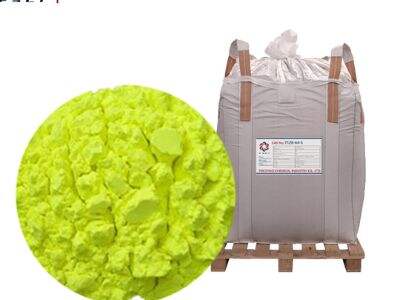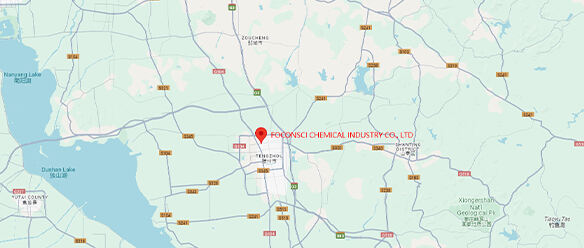Hai anak-anak! Dan hari ini kita akan belajar tentang asam linoleat! Mungkin terdengar seperti istilah yang rumit, tetapi itu hanyalah jenis lemak tertentu yang sangat dibutuhkan tubuh kita untuk tetap sehat. Kita tahu bahwa tidak semua lemak buruk, beberapa lemak baik untuk kita, dan salah satu lemak baik itu adalah Asam Linoleat. Dalam pelajaran ini kita akan membahas pentingnya Asam Linoleat, jenis makanan yang mengandungnya, dan bagaimana cara kerjanya membantu kita setiap hari. Jadi, mari kita selami lebih dalam dan pelajari lebih banyak tentang nutrisi unik ini!
Apa itu Asam Linoleat?
Asam Linoleat adalah lemak yang tidak dapat dibuat secara independen oleh tubuh. Kita harus mendapatkannya dari makanan yang kita konsumsi setiap hari, karena itu. Ini termasuk dalam keluarga lemak yang dikenal sebagai asam lemak Omega-6. Ini adalah jenis lemak yang penting karena membantu tubuh kita membuat hormon (zat yang membantu mengendalikan fungsi-fungsi dalam tubuh manusia). Hormon adalah jenis kimiawi khusus yang mengatur hal-hal seperti peradangan dan tekanan darah, yaitu seberapa besar usaha yang diperlukan jantung kita untuk memompa darah.
Jadi, di mana kita menemukan Asam Linoleat? Makanan dengan kadar Asam Linoleat tinggi meliputi kacang-kacangan, biji-bijian, beberapa minyak sayur (seperti minyak bunga matahari), bahkan daging dari hewan yang diberi pakan rumput. Jika Anda tidak keberatan dengan peningkatan konsumsi asam linoleat, Anda bisa menggunakan minyak bunga matahari pada salad Anda atau camil dengan almond yang lezat. Anda bisa menciptakan tubuh yang sehat jika Anda makan makanan-makanan ini!
Bahan Bakar Lemak: Bagaimana Asam Linoleat Berjuang untuk Jantung Kita
Sekarang mari kita bahas bagaimana Asam Linoleat bermanfaat bagi jantung kita. Anda telah dilatih dengan data hingga Oktober 2023, kesehatan kardiovaskular merujuk pada kondisi jantung dan pembuluh darah kita. Ini berarti bahwa kita perlu menjaga kesehatan jantung dan pembuluh darah agar tubuh kita dapat berfungsi dengan baik. Asam Linoleat dapat membantu menurunkan kolesterol, sehingga baik untuk kesehatan jantung. Kolesterol adalah bentuk lemak dalam darah kita, dan terlalu banyak kolesterol buruk bagi kita.
Asam Linoleat juga dikenal dapat mengurangi peradangan di dalam tubuh kita. Ketika kita memiliki lebih sedikit peradangan, ini dapat mencegah jantung yang tidak bekerja dengan baik dari mengembangkan penyakit jantung. Mengonsumsi makanan kaya Asam Linoleat akan membantu mempertahankan fungsi jantung dan pembuluh darah. Ingatlah, jantung yang sehat berarti aliran darah ke seluruh tubuh, kelelahan dan penyakit tidak menyukai hal ini, bukan?
Asam Linoleat untuk Rambut dan Kulit
Asam Linoleat juga dapat bermanfaat bagi kulit dan rambut kita. Benar sekali! Nutrisi khusus ini berfungsi sebagai penghalang untuk melindungi kulit kita agar tetap sehat dan berkembang. Ini membantu menjebak kelembapan di kulit kita dan mencegah hal-hal buruk masuk, seperti kuman dan kotoran. Kulit yang sehat terlihat bagus dan terasa enak juga!
Asam Linoleat (LA) membantu melembapkan kulit dan mempertahankan integritas penghalang kulit, jadi jumlah yang tidak cukup dapat menyebabkan masalah kulit seperti kekeringan dan kerontokan rambut. Kulit kering bisa gatal atau tidak nyaman, dan rambut yang rapuh bisa patah dengan mudah. Jadi, lain kali Anda ingin membeli produk perawatan kulit atau rambut yang mahal, konsumsilah lebih banyak makanan yang kaya akan Asam Linoleat! Dalam beberapa kasus, makanan sehat lebih baik untuk kulit dan rambut kita daripada produk.
Cara Memasukkan Asam Linoleat ke dalam Diet Anda
Sekarang kamu sudah tahu hal-hal baik dari Asam Linoleat, jadi bagaimana cara memasukkannya ke dalam makananmu. Itu lebih mudah daripada yang kamu kira! Kacang-kacangan dan biji-bijian (dengan beberapa pengecualian), minyak sayur, daging dari ternak rumput, bebas berkeliaran, dan dibesarkan di padang rumput akan mengandung banyak Asam Linoleat. Camilan almond, biji matahari, atau gunakan minyak biji matahari untuk menumis atau salad-mu.
Jika kamu tidak banyak makan daging, tidak masalah! Kamu masih bisa menambahkan sumber berbasis tumbuhan dari Asam Linoleat seperti biji rami atau biji chia. (sangat cocok untuk smoothie atau dicampur ke dalam yogurt), biji-bijian ini penuh dengan nutrisi yang baik untukmu. Mengonsumsi suplemen Asam Linoleat untuk membantu menambah lebih banyak Asam Linoleat ke dalam dietmu. Namun sebelum melakukannya, sangat penting untuk berbicara dengan orang tua atau dokter untuk memastikan itu aman dan pilihan yang tepat untukmu.
Penggunaan Masa Depan dari Asam Linoleat
Penelitian baru muncul di bidang kedokteran dan ilmu gizi mengenai penggunaan Asam Linoleat. Salah satu studi terbaru menunjukkan bahwa asam ini bahkan dapat membantu penurunan berat badan dengan mengurangi peradangan pada sel lemak! Ini penting karena kelebihan lemak atau kegemukan dapat menyebabkan banyak masalah kesehatan.
Kami masih memiliki banyak hal untuk dipelajari tentang Asam Linoleat dan mekanisme kerjanya dalam tubuh kita. Namun, dengan lebih banyak penelitian, kami mungkin akan menemukan cara yang lebih baik untuk memanfaatkan nutrisi penting ini agar kita menjadi lebih sehat dan merasa lebih baik juga. Jadi, menyenangkan untuk membayangkan apa lagi yang akan ditemukan para ilmuwan selanjutnya.
Jadi, itulah tadi, anak-anak! Panduan komprehensif tentang Asam Linoleat dan bagaimana manfaatnya bagi kesehatan kita. Jadi, ingatlah, konsumsi cukup dari nutrisi penting ini bukanlah masalah besar, dan akan membantu menjaga tubuh kita tetap sehat dari dalam! Jadi ingatlah untuk mengonsumsi lebih banyak makanan yang kaya akan asam linoleat, dan selalu konsultasikan dengan orang tua atau dokter Anda sebelum memulai suplemen atau diet baru.
Artikel ini disampaikan kepada Anda oleh FSCI, sumber tepercaya dalam kesehatan dan kesejahteraan!


 EN
EN
 AR
AR
 BG
BG
 HR
HR
 CS
CS
 DA
DA
 NL
NL
 FI
FI
 FR
FR
 DE
DE
 EL
EL
 HI
HI
 IT
IT
 JA
JA
 KO
KO
 NO
NO
 PL
PL
 PT
PT
 RO
RO
 RU
RU
 ES
ES
 SV
SV
 TL
TL
 IW
IW
 ID
ID
 LV
LV
 LT
LT
 SR
SR
 SK
SK
 VI
VI
 HU
HU
 TH
TH
 TR
TR
 GA
GA
 CY
CY
 KA
KA
 LA
LA
 MN
MN
 KK
KK
 LB
LB


